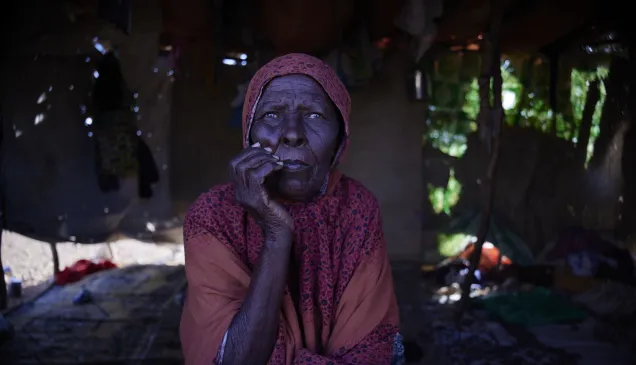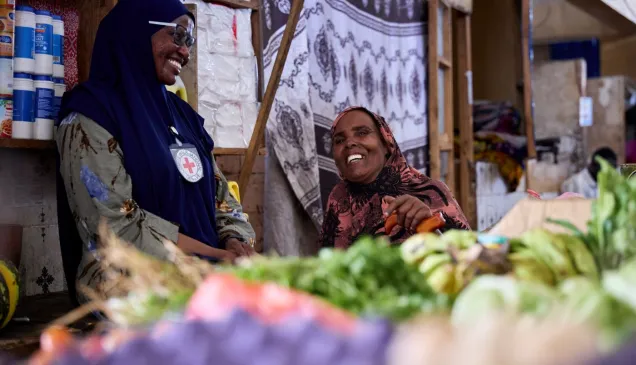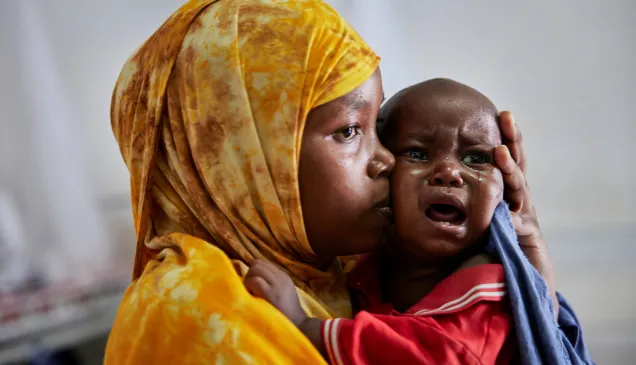The sunrise in Eyl glistens off the ocean, giving it a golden sheen. The days start at 4:30 a.m., as the fishermen enter the waters immediately after the morning prayers. Fishing is the main occupation for most residents in the town.
Somalia: Fishing in an old "pirate" town
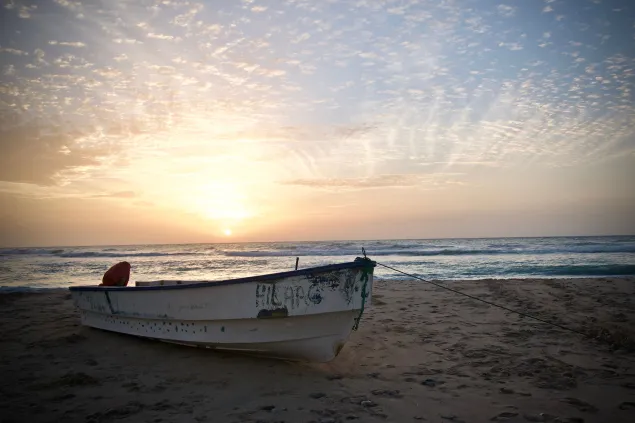
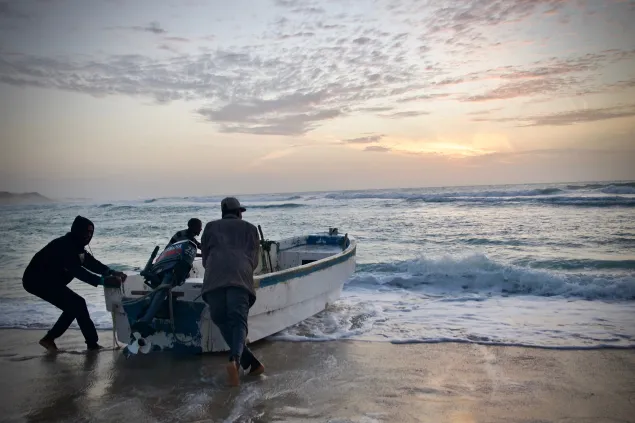
Huge waves and strong winds make it difficult to fish during the off season, from May to September. However, there is a small window during the day’s early hours to launch their boats and haul in as much fish as possible. The ICRC distributed boat engines to fishermen in Eyl to help boost their productivity. More boats means they can make more trips out to sea.
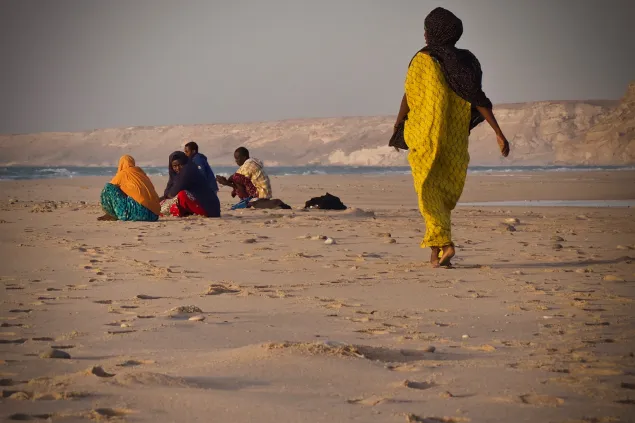
Business women and men patiently wait for fishermen to bring back their haul for the day. Due to the risk that the strong winds pose for the small artisanal boats, only a few experienced fishermen venture out to sea.
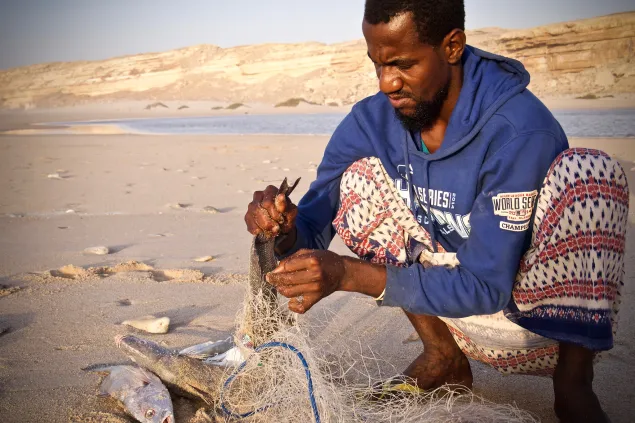
Mire Mohamed, a fishermen in Eyl, sells some of the day’s catch to the women at the beach and keeps the rest for his hotel in town. The solar powered freezers provided by the ICRC have made it easy for fishermen to store the fish and have less waste.
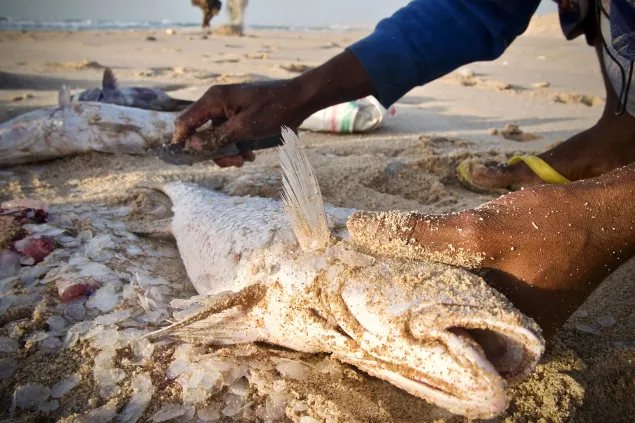
Mire prepares fish he caught to sell by removing the scales and entrails for his customers who have been waiting for him at the beach. During the high season, most of the fish are sold locally, but some of the catch, like dried shark, is exported to other countries.
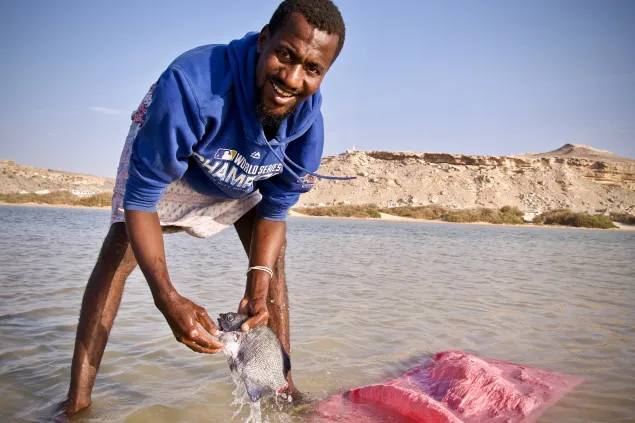
Mire, 34, rinses sand off his catch. Despite it being the low fishing season, fishermen can still make trips out during a small window of calm they have in the morning. The solar-powered freezers distributed by the ICRC help provide storage for fish that would otherwise have gone bad.
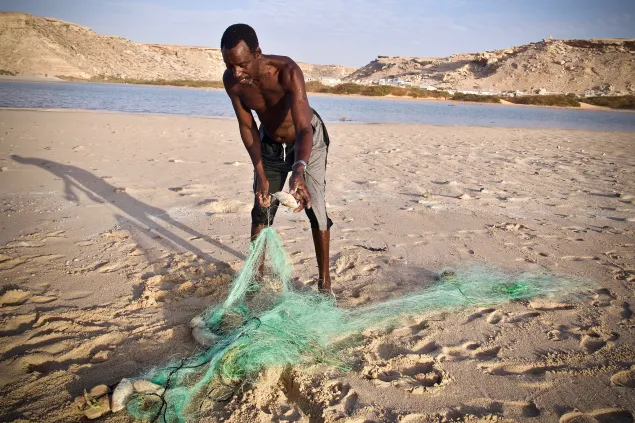
Mohamed Jamaa has been fishing for 40 years in Eyl. He lays the fishing nets out and the following day he collects his catch. He works closely with Mire. The pair sell the fish to the locals.
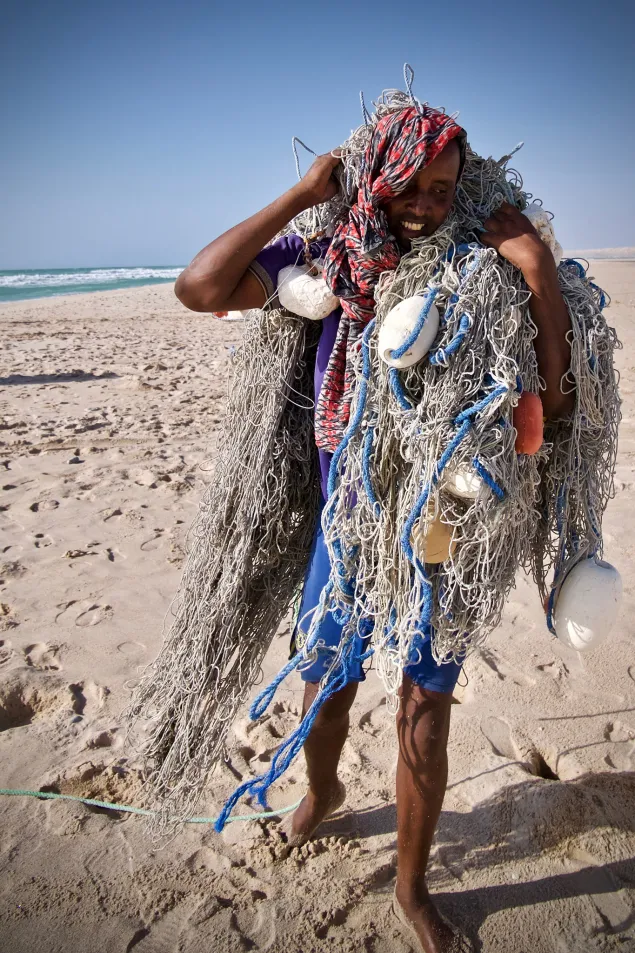
By nine in the morning the day’s fishing is all but done. The fishermen unload their gear and the boats are moored to the shore. The buoys allow the fishing nets to float even if the catch of fish is heavy.
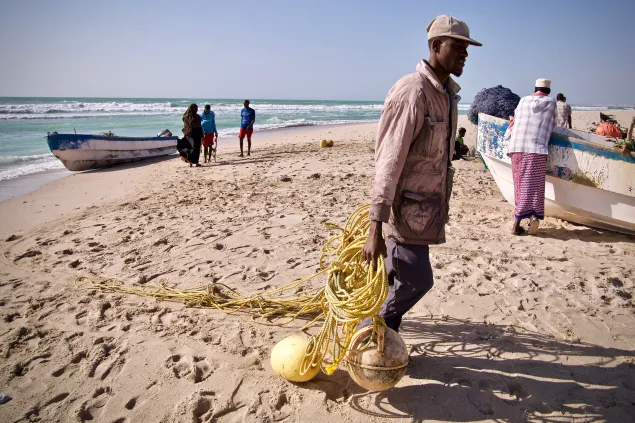
There’s a sense of community among the fishermen and they all help unload the equipment and move the heavy boats to shore.
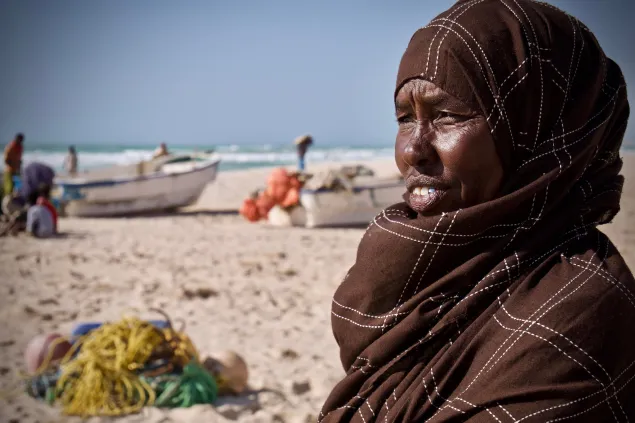
“This sea is a blessing given by God,” says Asha Abdikarim, who is looking forward to the high fishing season to begin in October. At 45, she has been a fisherwoman in Eyl since 1999 and is one of the prominent figures in the community.
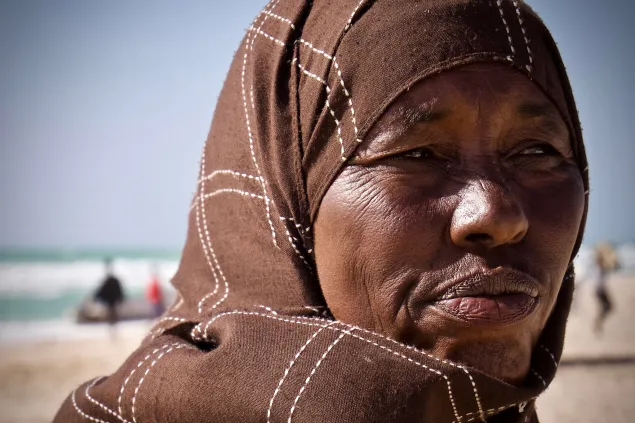
Not many women actively engage in fishing like Asha Abdikarim. Being in a traditionally male-dominated field doesn’t intimidate her and she has a strong passion for the sea.
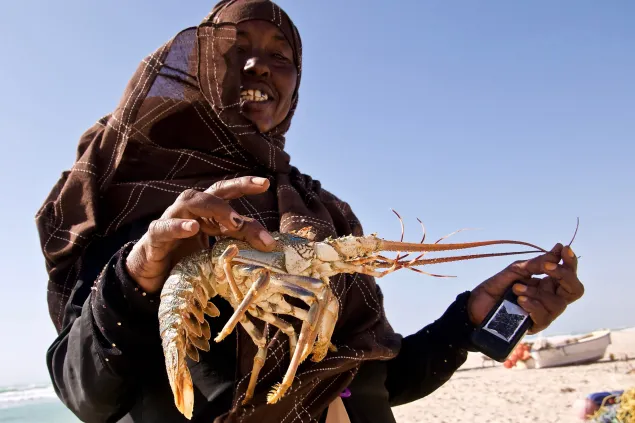
Asha holds a lobster she bought from one of the fishermen. She skipped going to the sea as she had to attend to business at her guest house. Through fishing, Asha, a single mother, has managed to put her three children through school.
Almost a decade ago, Eyl was a "pirate hub" that inspired books and the blockbuster movie "Captain Philips." Further back, at the turn of the 20th century, the city served as a bastion for the forces of Sayyid Mohammed Abdullah Hassan (known as the "Mad Mullah"). Several forts of the period mark the town's landscape. Eyl today offers both a rich history and beautiful shorelines and golden beaches. For the locals, throughout time, fishing has been a mainstay.
Eyl is one of three coastal towns in Somalia where the International Committee of the Red Cross (ICRC) is working with the local small-scale fishing community to help increase their productivity. The assistance includes fishing gear, boat engines and solar-powered freezers.

